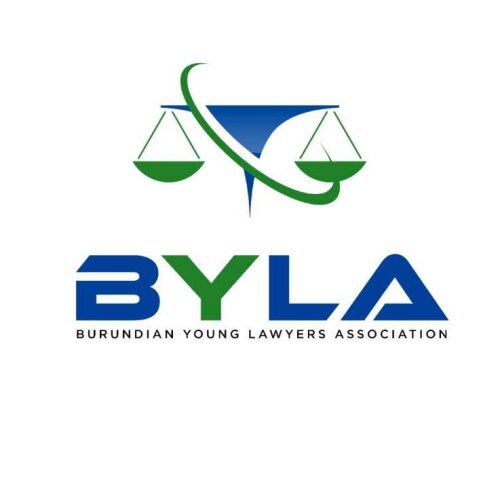Best Securities Lawyers in Burundi
Share your needs with us, get contacted by law firms.
Free. Takes 2 min.
Or refine your search by selecting a city:
List of the best lawyers in Burundi
About Securities Law in Burundi:
Securities law in Burundi governs the issuance and trading of securities, which are financial instruments that can be bought and sold. This area of law aims to protect investors and ensure fair and transparent markets.
Why You May Need a Lawyer:
You may need a lawyer for various reasons related to securities, such as drafting or reviewing securities agreements, handling disputes with investors or regulatory authorities, or ensuring compliance with securities laws and regulations.
Local Laws Overview:
In Burundi, the main laws governing securities include the Securities Law of 2011 and the regulations issued by the Capital Markets Authority. These laws regulate the issuance, trading, and disclosure requirements for securities in the country.
Frequently Asked Questions:
Q: What are securities?
A: Securities are financial instruments that represent ownership or debt in a company or entity. Examples include stocks, bonds, and mutual funds.
Q: What is the role of the Capital Markets Authority in Burundi?
A: The Capital Markets Authority is the regulatory body responsible for overseeing the securities market in Burundi and enforcing securities laws and regulations.
Q: What is insider trading?
A: Insider trading refers to the illegal practice of trading securities based on non-public, material information about a company.
Q: Are foreign investors allowed to participate in the Burundian securities market?
A: Yes, foreign investors are generally allowed to participate in the Burundian securities market, subject to certain regulations and restrictions.
Q: What are the penalties for violating securities laws in Burundi?
A: Violating securities laws in Burundi can result in fines, imprisonment, or other sanctions imposed by the Capital Markets Authority or the courts.
Q: How can I file a complaint about a securities-related issue in Burundi?
A: You can file a complaint with the Capital Markets Authority or seek legal advice from a securities lawyer to guide you through the process.
Q: What are the disclosure requirements for companies issuing securities in Burundi?
A: Companies issuing securities in Burundi are required to disclose relevant information to investors to ensure transparency and protect their interests.
Q: Is it necessary to have a lawyer when investing in securities in Burundi?
A: While not mandatory, having a lawyer can help you navigate the complexities of securities laws and ensure your investments comply with regulations.
Q: How can I learn more about securities laws in Burundi?
A: You can consult the Securities Law of 2011, regulations issued by the Capital Markets Authority, or seek guidance from legal experts specializing in securities law.
Q: What are the key risks associated with investing in securities in Burundi?
A: Investing in securities carries risks such as market volatility, economic uncertainty, and regulatory changes that can impact your investment returns.
Additional Resources:
For further information on securities in Burundi, you can visit the Capital Markets Authority's website or seek guidance from legal professionals specializing in securities law.
Next Steps:
If you require legal assistance in securities matters in Burundi, consider consulting with a qualified securities lawyer who can provide you with expert advice and representation to safeguard your interests.
Lawzana helps you find the best lawyers and law firms in Burundi through a curated and pre-screened list of qualified legal professionals. Our platform offers rankings and detailed profiles of attorneys and law firms, allowing you to compare based on practice areas, including Securities, experience, and client feedback.
Each profile includes a description of the firm's areas of practice, client reviews, team members and partners, year of establishment, spoken languages, office locations, contact information, social media presence, and any published articles or resources. Most firms on our platform speak English and are experienced in both local and international legal matters.
Get a quote from top-rated law firms in Burundi — quickly, securely, and without unnecessary hassle.
Disclaimer:
The information provided on this page is for general informational purposes only and does not constitute legal advice. While we strive to ensure the accuracy and relevance of the content, legal information may change over time, and interpretations of the law can vary. You should always consult with a qualified legal professional for advice specific to your situation.
We disclaim all liability for actions taken or not taken based on the content of this page. If you believe any information is incorrect or outdated, please contact us, and we will review and update it where appropriate.
Browse securities law firms by city in Burundi
Refine your search by selecting a city.











